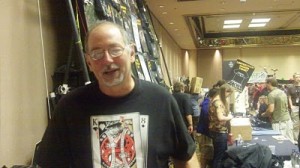Today Wetmachine talks with Geraldine Brooks, whose novel March won the Pulitzer Prize for fiction in 2006, about trends in publishing. She joins the roster of Wetmachine “Whither Publishing?” interviewees including Writer’s Digest impresaria Jane Friedman, ebook pioneer Mark Coker of Smashwords.com, and book designer extraordinaire Joel Friedlander.
I met Geraldine Brooks when we were seated next to each other at a small dinner party about two months ago. (Geraldine and her husband Tony Horwitz (also a recipient of the Pulitzer Prize — his is for journalism) and I have many mutual friends, including my wife Betty, who directs the lecture series at the Vineyard Haven Public Library, where Tony has been a speaker and Geraldine is on the hook for a talk next year.)
At that dinner party Geraldine and I discovered that we had many similar interests, including a shared taste for dystopian science fiction novels — the very kind of book I write. I offered to drop off a few copies of my books at her house and she said, “Oh, please do.” So the next day I hoped on my bicycle and rode to the address she had given me, and that’s how I discovered where she lived and that I had met her young son Bizu some 9 months earlier, when the fire truck to which I’m assigned, T___ 651, was parked in front of their house during a routine “furnace backfire” call. When I got home from dropping off my books I sent Geraldine the write-up in my diary about that fire call, and she was thrilled to get it, saying “That’s fantastic. Thank you so much for sending this. I remember that day quite vividly. I thought, that’s a very nice man out there, letting Bizu ramble away at him..”
Since then Geraldine & I have become pals. I think the moral of the story is, if you want to get on the good side of a famous writer and get her to answer questions for your insignificant little blog, let her observe you being nice to her child without having any idea who he is or that she’s observing you through the window.
I’ve attached that diary entry at the end of the interview. Continue reading




